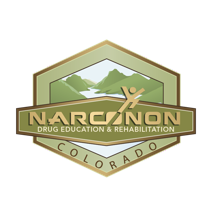Some Things that Have Helped Me Stay Sober After Treatment

I will soon be celebrating my 5th year of sobriety and over these years I have learned many lessons both in and out of treatment. Some of them have been easier to pick up than others however, all of them have helped me grow along the way. The past five years have not always been easy; there have been times that have tested my will power along with my mental and emotional strength. I have had moments of loss that have broken my heart and tested my determination to stay sober in ways that I did not expect. I will not lie and say that in those difficult times the thought of drinking never crossed my mind but what is important is that I did not act on those thoughts. I think anyone who has dealt with substance abuse will tell you that once you get sober there will be times that test your sobriety. The key is learning to fight through the pain because every time you do, you come out stronger. Life does not stop being challenging just because we get sober. The thing that does change is the way in which we choose to deal with these challenges in healthier and more effective ways.
When looking back at what has caused me to make it this far in my sobriety, I have found that there were a few key things that have helped me out the most. It is my hope that you can use my experience to help yourself or to help someone you love. They are simple and aren’t “groundbreaking new discoveries” by any means; nonetheless, they are useful.

1. You must find or create a support group of positive individuals that will help you maintain accountability.
If you isolate yourself from others it becomes too easy to fall back into old habits. When there is no one around who can constructively call you out on your behavior if needed, it becomes too easy to slip up. It is important to work on rebuilding the meaningful relationships that were harmed during active addiction; the people who stuck by you and supported you emotionally while you were at your worst deserve it. Unfortunately not everyone has a family that tries to understand or support their addiction recovery; in this case, it is important to find people who will. If you are lucky enough to have a supportive family, do not take them for granted and put forth a genuine effort to do right by them.
2. If you really want to stay sober then you will have to stop hanging out with people who are actively using.
This can be a pretty difficult thing to do considering you may have known some of the people you used with for years. The truth of the matter is if you surround yourself with people who are actively using drugs; it will only be a matter of time before you start using again yourself. When it came to drinking, I had to stop hanging around people while they were drinking. This was difficult in the beginning, but it was more difficult to be around people while they were drinking than it was to simply leave the situation.
Another reason why this may be hard is because many times when we first get sober we do not know anyone who doesn’t use. A further issue is that we may not know how to interact with people who are not caught up in the drug lifestyle. This is something that when worked on will improve with time. The more you do it the easier it will become to interact with others while sober.

Someone once told me an analogy about why it’s so important not to hang out with people who are actively using drugs and it made a lot of sense. Let’s say you were told by a Dr. that you could no longer eat ice-cream even though you loved ice-cream because it was causing you health problems. For the sake of the example, the Dr. said that if you continued your eating habits you might die. Then you went and spent your time with people who were eating ice-cream in front of you and they were constantly talking about their favorite types of ice-cream. After that, you started going to the ice-cream parlor and regularly walking down the ice-cream isle in the grocery store. What do you think would happen? You would want to eat ice-cream, and the longer you did these things the harder it would be to say no. Eventually, you would break down and start eating ice-cream again. It is an oversimplification of a complex issue, however, the general message is the same as it would be if you were quitting drugs or alcohol.
3. It is imperative that you find and participate in fun hobbies and activities that are not centered on drinking or using drugs.
When someone is caught up in active addiction, it is easy to stop doing other things that they enjoy. When getting sober it is crucial that you begin to either do the things you liked to do before you started using drugs, or find new hobbies to do instead. I had a difficult time with this one in the beginning, especially during my first year of sobriety. I would work long hours and didn’t have much money because I was essentially starting over. I also didn’t have a very wide circle of friends, as a result of cutting ties with many of the people I used to hang out with before getting sober. I didn’t have access to my car because I was working on repairing some of the damage I had caused to it from my substance abuse. This all resulted in me going home after work and not doing much and I often became bored.
Being bored in early recovery is not a good thing. I realized this and began to start reading, drawing and painting again. These were things I had always enjoyed but stopped doing when I was drinking too much. Eventually, I began to start participating in other activities and going to the gym to work out. I began hiking and fishing once more and going to the movies. I made it a point to try and stay active and busy in order to make my life more satisfying.

4. It is necessary to take care of yourself physically.
This is a very critical thing to remember. If you are not taking care of yourself you will not feel very good. Something I realized after completing the New Life Detoxification at Narconon was that when I felt better physically, I was much less prone to wanting to change the way I felt by consuming drugs and alcohol. It is important to eat well and exercise, not so much to be in excellent shape, although that is an added benefit, but to simply feel better. When you exercise regularly your body releases endorphins that help you feel great naturally.
If you eat healthy (for the most part) you have more energy, improved concentration and simply feel better than you would if you’re eating junk food and leading an inactive lifestyle. Another thing that I found to be beneficial was saving up and budgeting for ways to do nice things for myself, like getting a massage or a pedicure. When you aren’t spending all of your money on drugs or alcohol it becomes much easier to set aside part of your income to treat yourself every now and then.
5. It is also paramount that you take care of yourself mentally and emotionally.
Set up healthy boundaries and do not hang out around people who are going to be negative towards you or bring you down. Something that I have found to be very beneficial is feeding my mind positive and motivational messages on a daily basis. There is a nearly endless supply of motivational books to read and videos to listen to on YouTube. By feeding your mind these positive messages on a regular basis you will begin to find that your mindset will change for the better.
On the other hand, if you are constantly receiving negative reinforcement from television, music, people and so on you will find that you too will become negative. A very important skill that I gained during treatment was learning to recognize anti-social personality traits in people. This is something that has allowed me to become more selective about who I will allow in my life and who I will not allow in my life. It is also very helpful to find someone you can trust and talk to when things get difficult. Don’t forget to do things that will nourish your mind and your soul, not just your body. We are multidimensional creatures and as such need to remember to take care of ourselves on all of these levels.
6. Actively work on rebuilding responsibility.
This is a tough one but it is well worth the extra work. An unfortunate side effect of substance abuse is a decrease in responsibility; because the main priority for anyone dealing with addiction is feeding that addiction. When I finished treatment I had a lot of things that I needed to take care of that I had been putting off due to my drinking.
I had fallen behind on my student loans, my credit was suffering, my car was in bad shape and I had no money to my name other than a couple hundred dollars in my bank account. It took a lot of hard work and discipline but now almost five years later I have rebuilt my credit, my student loans are almost completely paid off and I recently bought a new car. I have developed the habit of saving money and therefore have a substantial amount of savings for a rainy day or to put towards a down payment on a house.
I was not able to do all of these things overnight, and it has taken a lot of self-control. The first step I took towards rebuilding responsibility was getting sober. During treatment, I slowly began to work on developing more responsibility by fulfilling my obligations and by owning up to the mistakes I had made in the past. It can be a tough decision to put all of your tax return towards paying off debt. Nonetheless the more I take care of my responsibilities and obligations the better I feel and the less anxiety they cause me. In the beginning, it may be tough and can feel overwhelming, but in the end, it will become a habit that will make your life more peaceful.
7. Don’t compare yourself to others.
It is sound advice that I think we have all gotten at one point or another. This has become something that is harder and harder to do, especially during the age of social media. It is especially important during recovery not to compare yourself to other people who are either doing better, or worse than you are. The only person that you need to focus on when it comes to improving and doing better is yourself.
In the beginning, I used to look at other people and think: they drink more than I do, why should I have to quit and they don’t? This is a very dangerous mindset to get into because there will always be someone doing better or worse than you. When we compare ourselves to others we invalidate the progress we have made or the progress that others have made and in the end, this will only be destructive.
Another problem I had was looking at people my age that seemed to be doing much better than I was. They were already married, had children, a home, nice car etc. Here I was just finishing treatment, single, and no house. I had a beat up car, hardly any money and had just begun the process of restarting my adult life. If I had focused on this too much it could have destroyed me and lead me back to my old ways. Instead, I used this to motivate myself to do better and to continue to take the steps towards improving my life.
8. It is vital to not only learn healthy coping mechanisms but to practice them as well.
This is the necessary distinction because anyone can learn that going for a run is going to be a more productive way of dealing with anxiety than drinking or using drugs, but knowing this does not do any good unless you actually do it. For many years my go-to solution to any uncomfortable emotion or situation was to try and avoid it by drinking or getting high.
When you hit uncomfortable feelings later in life, which you will, that is part of life, try and remember that they are temporary and will go away. You have to work through them. This is easier said than done, I know, but the more you work on this life skill the better you will get at it. The pain and embarrassment of a relapse will last much longer than the feelings you wanted to escape from in the first place.

9. As cliché as it sounds — remember that tough times don’t last but tough people do.
One thing that I suggest to people who are new to recovery is to always remember why they wanted to quit using or drinking in the first place. It is easy to look back and reminisce about the good times and the fun times, yet it is essential to remember the bad times that substance abuse has brought about as well. Avoid glorifying something that has caused so much destruction your life because if it wasn’t harmful you never would have tried to quit, to begin with.
When it all comes down to the basics, long term sobriety isn’t just about not using drugs or not drinking alcohol. Long lasting sobriety requires you to change your lifestyle and your mindset; it is about working on yourself every day and finding opportunities for personal growth and betterment.
10. The more you work on making your life better in sobriety than it was while using the easier it will be to stay sober.
At this point, I have way too much to lose to risk throwing it all away for a drink or the chance to get high. It took a while to construct a better life for myself, however, all of the hard work that it required has made me appreciate it even more. It is my hope that everyone who is on the road to recovery, whether they are just starting out or have been walking this path for a while, take the time and effort to create for themselves a meaningful life.
When it comes down to it we all want a life that although may not be perfect, brings about purpose and joy. Things will not always be easy because no matter who you are that’s just how life is but they can be worth it. It is important to keep that spark of hope alive especially in the darkest of times because isn’t that why we all decided to make that difficult decision to get sober in the first place?
If you or someone you know is struggling with the decision to get sober I highly recommend taking the first step towards a better life and asking for help. It may be a hard choice to make but it will be one that is worth it which you will thank yourself for some day.
Call us today to take that first step to a drug-free life 1-877-833-1058


